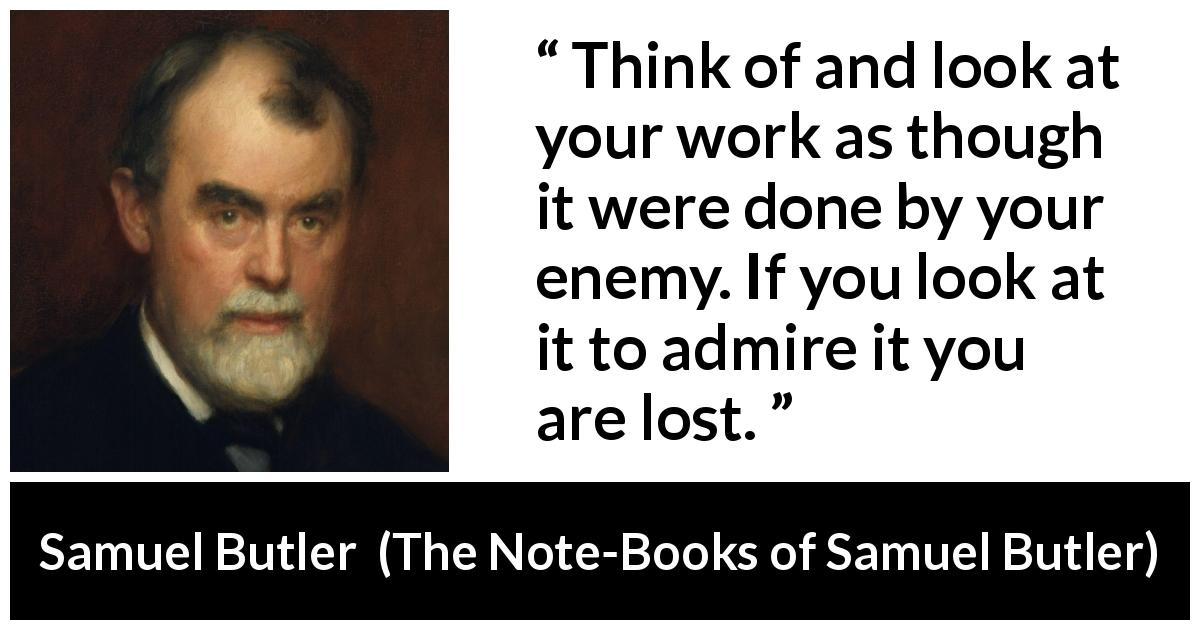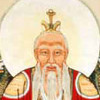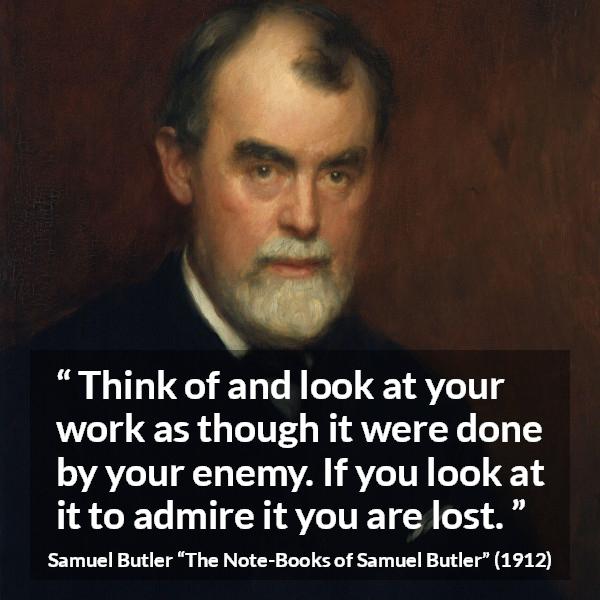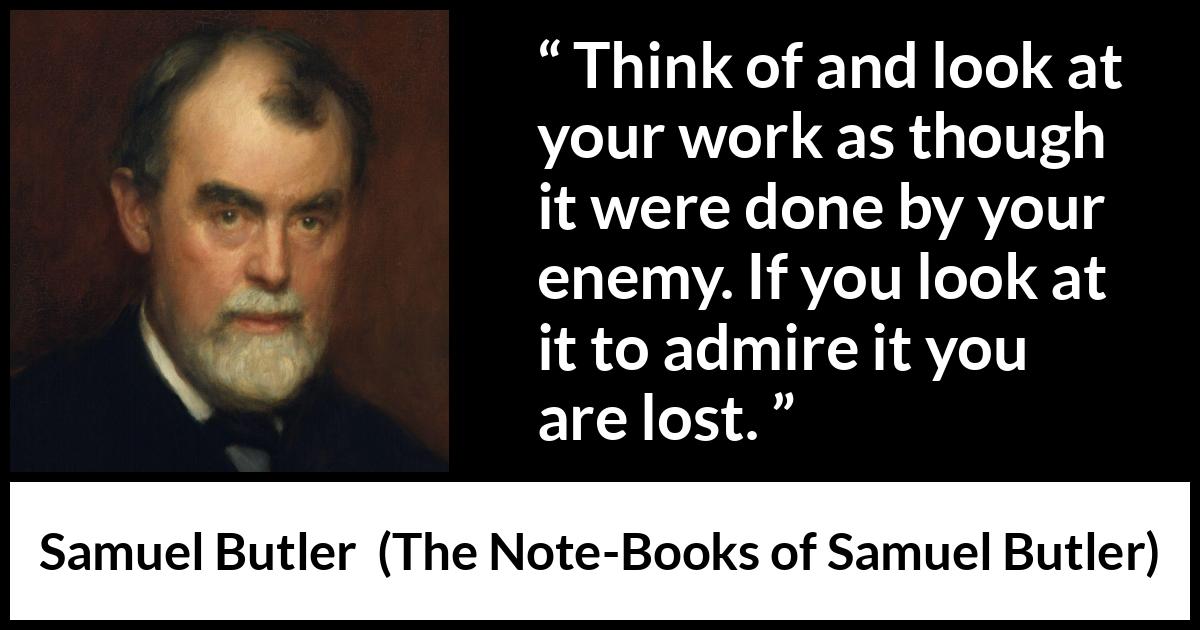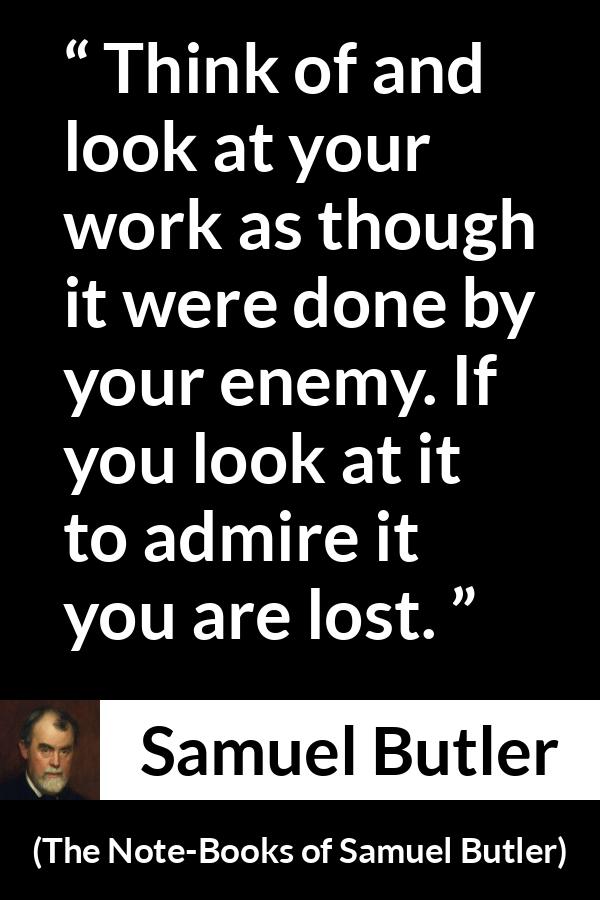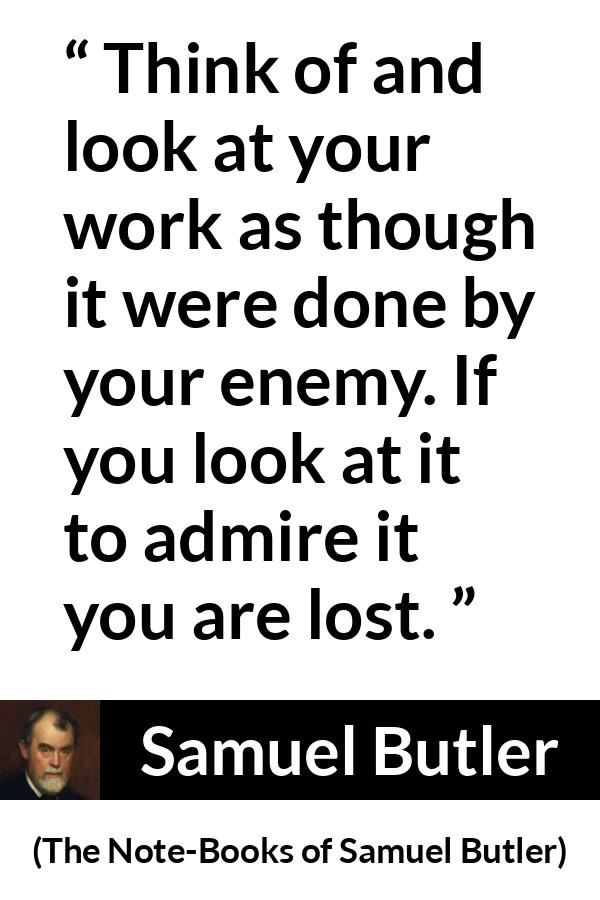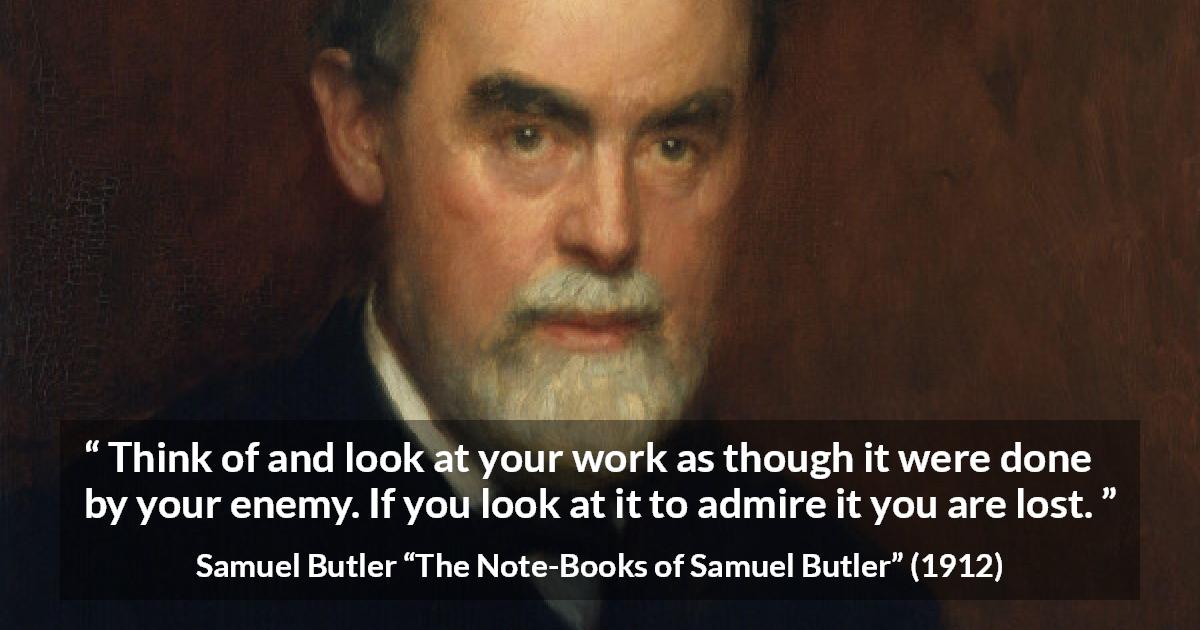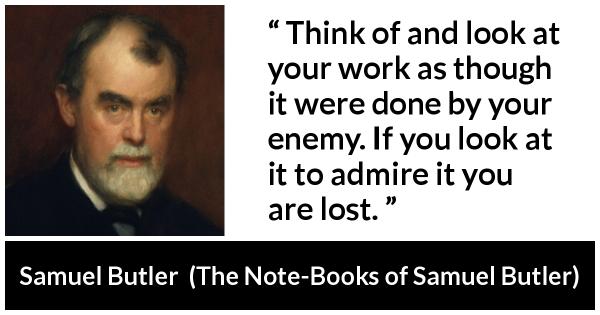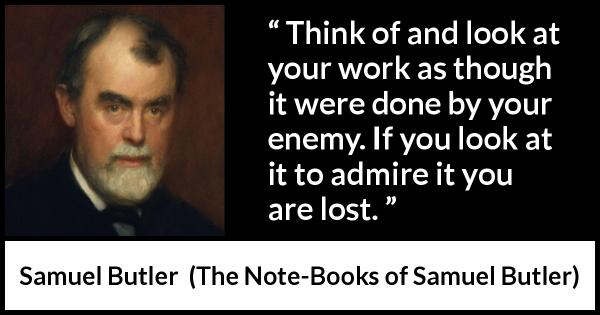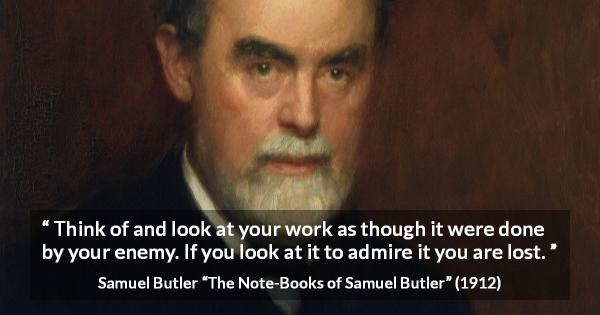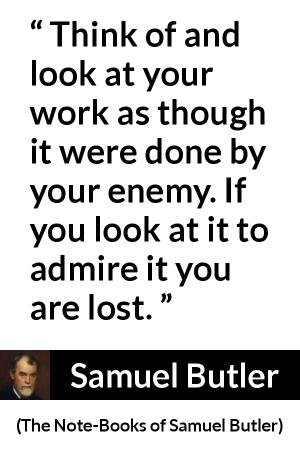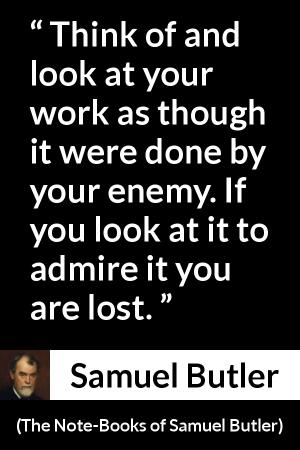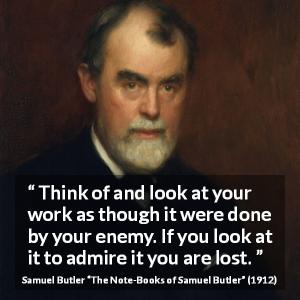“ Think of and look at your work as though it were done by your enemy. If you look at it to admire it you are lost. ”
Samuel Butler, The Note-Books of Samuel Butler (1912). copy citation
| Author | Samuel Butler |
|---|---|
| Source | The Note-Books of Samuel Butler |
| Topic | praise work enemy admiring |
| Date | 1912 |
| Language | English |
| Reference | |
| Note | |
| Weblink | http://www.gutenberg.org/files/6173/6173-h/6173-h.htm |
Context
“Quickness in seeing as in everything else comes from long sustained effort after rightness and comes unsought. It never comes from effort after quickness.
Improvement in Art Painting depends upon seeing; seeing depends upon looking for this or that, at least in great part it does so. Think of and look at your work as though it were done by your enemy. If you look at it to admire it you are lost.
Any man, as old Heatherley used to say, will go on improving as long as he is bona fide dissatisfied with his work. Improvement in one's painting depends upon how we look at our work. If we look at it to see where it is wrong, we shall see this and make it righter.” source
Improvement in Art Painting depends upon seeing; seeing depends upon looking for this or that, at least in great part it does so. Think of and look at your work as though it were done by your enemy. If you look at it to admire it you are lost.
Any man, as old Heatherley used to say, will go on improving as long as he is bona fide dissatisfied with his work. Improvement in one's painting depends upon how we look at our work. If we look at it to see where it is wrong, we shall see this and make it righter.” source
